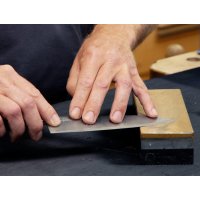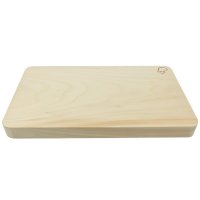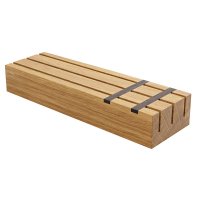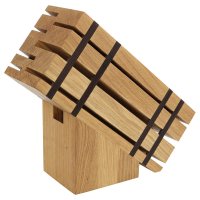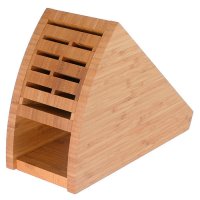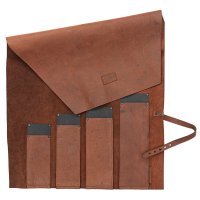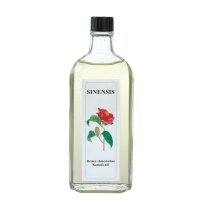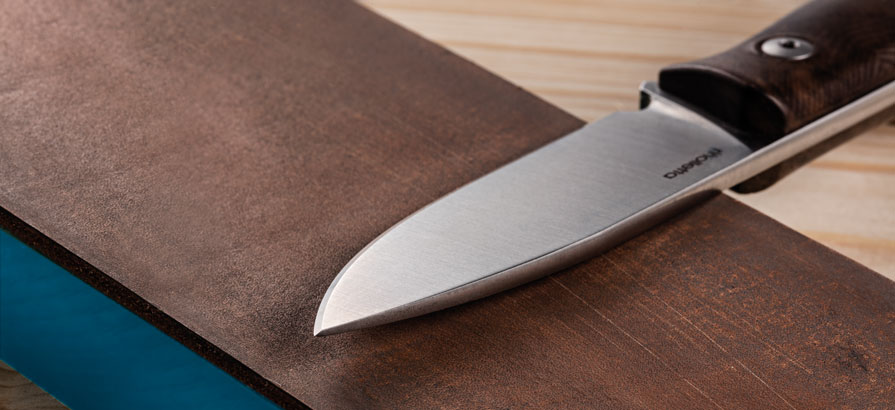
Whether at home, in a star kitchen or out hunting - knives need to be kept sharp. A sharp knife is a safer and more efficient knife than a dull one. But a one-time sharpening is not permanent. Knives lose their sharpness with each use - which is completely normal. Here are some tips to help you to keep your knives sharp for longer.
Why should knives be sharp?
It may seem counterintuitive, but high-quality, sharp knives do not only offer excellent performance, but they are also much safer to use. The finely finished blades of premium knives guarantee effortless handling. Working with such sharp knives requires less effort and precision cuts are better controlled. With a sharp knife, you can slice meat for taste and chop vegetables finely. Controlled movements ensure safety and minimise the risk of slipping and injury. However, should something happen, a clean cut with a sharp knife heals faster than a messy cut from a blunt knife.
How to use a knife correctly
Working on hard underlays, such as glass or granite, quickly dulls the blade.
The correct cutting board — and this applies to all knives, not just original Japanese ones — is made of wood or plastic.
What kind of chopping board should I use in the kitchen?
While chopping boards made of acacia wood suit the typical European taste, chopping boards made of Ginkgo wood are mainly popular in Japan. Ginkgo is the ideal material for chopping boards. This solid board is made of non-glued, air-dried Japanese Ginkgo, with a planed and untreated surface. Acacia wood, like Ginkgo, is antibacterial. Here you will find our full range of chopping boards.
Like wooden knife handles, wooden chopping boards should be oiled regularly to preserve their beautiful finish.
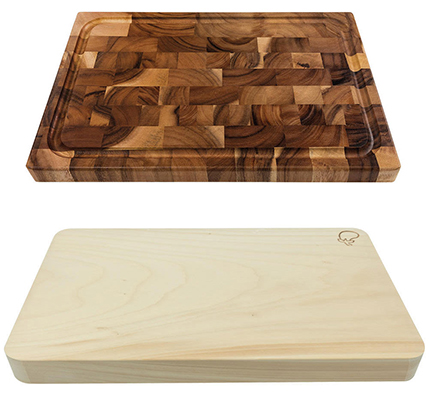
Cutting techniques
Make sure you using the right cutting technique. Very important: Avoid too much leverage on the blade. This can make fine blades in particular break. Also avoid applying pressure to the sides of multi-layered blades.
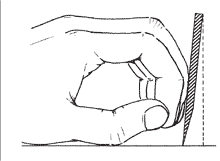
For precise cuts, e.g. when cutting thin slices, let the blade rest against the finger knuckles of your free hand.
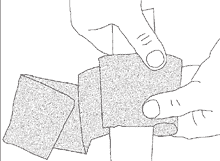
For paring cuts, e.g. when slicing a radish or a cucumber, guide the food close to the cutting edge and turn.
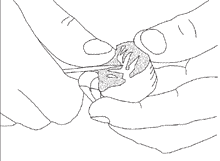
For trimming cuts, the blade is guided close to the tip.
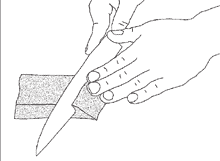
Let the knife glide while filleting and cutting sashimi by making pulling cuts. The bevel is at the bottom.
How do I clean rustproof and non-rustproof knives?
After use, clean the knife by hand, rinsing it under lukewarm water. If the knife has been lying around for a while and there is residue on the blade, you can also add a little washing-up liquid. Do not use abrasive cleaning powders as they will damage the cutting edge.
Do knives get dull after washing in the dishwasher?
The ingredients in dishwasher detergents are harmful to knife blades. They are so aggressive that they can wear down the cutting edge. This is a side effect of the good washing performance of dishwasher detergents. To remove dirt and encrustations from crockery and cutlery, dishwasher detergents contain abrasive agents and acidic ingredients (e.g. citric acid), which also damage the metal of the blade. Rustproof knives are also unfit for the dishwasher!
How do I care for my knives?
Not rustproof knives require a little more care than rustproof knives. As they are more susceptible to rusting, you should not leave them in water for longer than necessary. Dry the knife carefully after cleaning and treat the blade regularly with a little oil, such as camellia oil. The food-safe oil is acid-free, non-resinous and not volatile - making it the oil of choice for kitchen knife care.
How should I store my knives?
High-quality knives should be stored in a way that prevents the cutting edge from coming into contact with other hard objects - such as other cutlery. For this reason, avoid carelessly »throwing them in the drawer«. Even if you place your knife carefully on top of the other knives or cutlery in the drawer, there is a risk that your knife will strike other cutlery, becoming dull and even breaking off due to the momentum of opening and closing in the drawer.
High-quality knives should be stored separately in a knife block or in a wooden knife box. For space-saving storage, cases or knife rolls are a practical solution. Knife rolls also safely transport your knives if you ever want to take your them to a cooking class or to cook together with friends.


